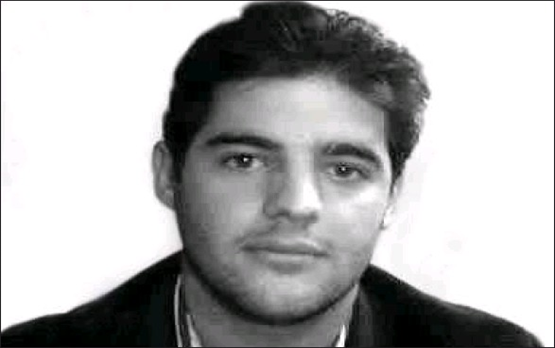On 8 August 2019, the UN Working Group on Arbitrary Detention and the Special Rapporteur on the human rights of migrants published an allegation letter to the Government of the United Arab Emirates (UAE), citing concern for Guillaume Pernot (aka Yannick Dacheville), who was allegedly arrested, arbitrarily detained, and tortured.
According to the allegation letter, Mr. Pernot is a French citizen that has lived in the UAE since 2011. He fled to the UAE after he was allegedly involved in criminal enterprises in France. On 11 March 2019, police arrested Mr. Pernot in front of the Al Khairmah building without showing him a warrant or providing any reason for the arrest. The police took him to the Dubai Central Investigation Directorate (CID) Police General headquarters. For two days, Mr. Pernot was reportedly placed in solitary confinement and deprived of food and water. Additionally, the police refused to allow him to contact his lawyer or his family.
Mr. Pernot applied multiple times to the Dubai Public Prosecution and Dubai Human Rights Department to obtain information about why he was arrested. On 9 April 2019, approximately one month after his arrest, Mr. Pernot received a detention certificate stating that he was detained for the purpose of extradition to France in relation to Dubai INTERPOL case number 93/2011, pursuant to an order signed by the Abu Dhabi Ministry of Justice. Mr. Pernot and his attorneys attempted to get a copy of Mr. Pernot’s casefile from the Dubai Public Prosecution to understand his continued detention; however, even though the UAE has already detained him longer than is legally accepted, the Dubai Public Prosecution refused to give Mr. Pernot access to his case file.
On 24 June 2019, the police transferred Mr. Pernot to the Central Jail (Al Awir), where the conditions of his detention worsened. Mr. Pernot had limited clothing and no means to buy food or have sanitary amenities. Additionally, he was held in a small, dark cell with four other inmates and suffered from smoke inside the cell. His head was shaved against his will and he was not allowed to go outside. Furthermore, prison administrators refused to allow Mr. Pernot access to his attorneys and granted him very limited time with his family. Sometime between late July and the beginning of August 2019, a guard at the jail assaulted Mr. Pernot, removing his underwear without his consent. Although Mr. Pernot submitted a transfer request, the prison had not yet granted his request at the time the letter was sent.
On 17 July 2019, Mr. Pernot’s wife, a British citizen living the UAE since 2016, gave birth to their son. Mr. Pernot must be allowed to sign various registration forms in order for his son to be granted documentation and a passport; however, the Dubai Public Prosecution, the Dubai Human Rights Department, the INTERPOL Office and the prison administration at Central Jail (Al Awir) all rejected Mr. Pernot’s applications for him to be allowed to sign the papers. Thus, Mr. Pernot’s son is effectively being denied the right to a nationality and is stateless. Furthermore, UAE law states that the parents must apply for a residency visa within 30 days of the child’s birth or they are liable for fines; however, the baby must have a passport in order to obtain a residency visa. Additionally, at the time of the communication, Mr. Pernot had not been allowed to see his son since his birth.
The Working Group and Special Rapporteurs expressed serious concerns about the legal basis of Mr. Penot’s detention, the conditions of his detention, and the UAE government’s attempts to prevent Mr. Pernot from properly registering his son. The Special Procedures offices noted that these allegations violate the UAE government’s human rights obligations, including the Universal Declaration of Human Rights and the UN Standard Minimum Rules for the Treatment of Prisoners. The Working Group and Special Rapporteur requested that the UAE government ensure that Mr. Pernot’s and his son’s rights are protected, and that Mr. Pernot is not arbitrarily detained. Additionally, the Working Group and Special Rapporteur appealed to the UAE government to either immediately release Mr. Pernot or try him according to fair standards.
In September 2019, Mr. Pernot was reportedly extradicted to France, where he remains imprisoned. It is unclear whether his wife and child remain in the UAE or have returned to France.





